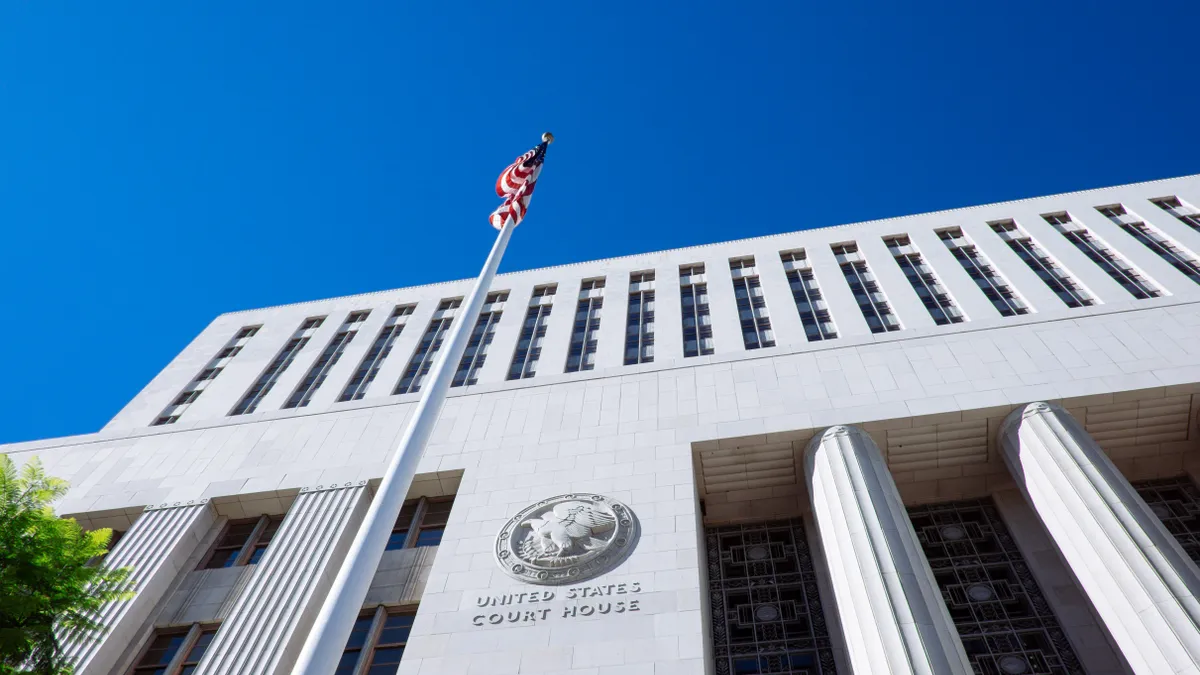Dive Brief:
- The National Football League says a $4.7 billion award in a class-action lawsuit alleging the league overcharged subscribers for out-of-market NFL games “is at once among the largest in American history and also among the least defensible.” In a motion to overturn the verdict, league attorneys called the damages “nonsensical.”
- The jury erroneously mistook a discount for an overcharge, the league argued. It based its award on the difference between 2018 and 2019 Sunday Ticket list prices of $294 and the average actual price of $102.74 that residential subscribers paid over the 11-season class period, the NFL said in its July 3 filing.
- Judge Philip Gutierrez allowed plaintiffs to introduce an “untimely and improper theory of ‘price-fixing’” at trial, the league said. Additionally, the jury was “improperly tainted” by the presence of a biased juror, according to the NFL. Gutierrez has scheduled a July 31 hearing on the case.
Dive Insight:
The plaintiffs alleged that the NFL’s Sunday Ticket agreement with DirecTV violated antitrust law by overcharging residential and commercial subscribers for the games package. The league argues that Gutierrez should reverse the verdict as a matter of law, and to schedule a new trial.
The Los Angeles trial “was infected with Plaintiffs’ novel ‘price-fixing’ theory — namely their allegation that the NFL had agreed with CBS, FOX, and DirecTV that DirecTV would maintain the Sunday Ticket price at an allegedly elevated level,” the league argued.
The NFL says jurors mistook the $191.26 difference between the listed retail price and the actual average paid for an overcharge and applied it across 24.1 million residential and nearly 507,000 commercial subscriptions that were sold between June 2011 and February 2023.
“Although the jury did not detail the basis for its calculations, its highly specific damages figures leave no doubt what it did,” the league wrote, offering a table of jurors’ simple “phone calculator” math. “The jury’s irrational calculations reflect speculation and guesswork and require setting aside the verdict.”
The jury’s award of $4.61 billion for residential subscribers and $96.9 million for businesses “didn’t track” any of the models offered during trial to assess damages, a Cornell University legal and economics professor, George Hay, told Legal Dive on June 28, the day after the verdict was announced. “None of the various models that were proposed came up with that number,” he said.
The league also contends that the plaintiffs misapplied the fourth step of the rule of reason, and did not prove their allegation of anticompetitive conduct. The judge further compounded the error by improper instructions to the jury, according to the NFL.
“Plaintiffs’ claims, if upheld, threaten to upend the entire structure by which content is created, distributed, and priced,” the league said. “It puts a wide range of legitimate joint ventures at risk. And it risks chilling investment, innovation, and reducing consumer choice and product quality.”
The foreperson also should have been excluded from the jury given that this juror paid for the Sunday Ticket subscription of a member of their household, the NFL said. The judge rejected the league’s challenge because that subscriber was not a member of the plaintiff class.
Gutierrez also erred by allowing inadmissible evidence, including improper impeachment, rebuttal testimony and evidence of prior litigation against the NFL, the lawyers wrote.
The league has said it will appeal the case, given the implications of a large damage award that could be tripled. Any financial costs would be borne by the NFL’s 32 teams.











